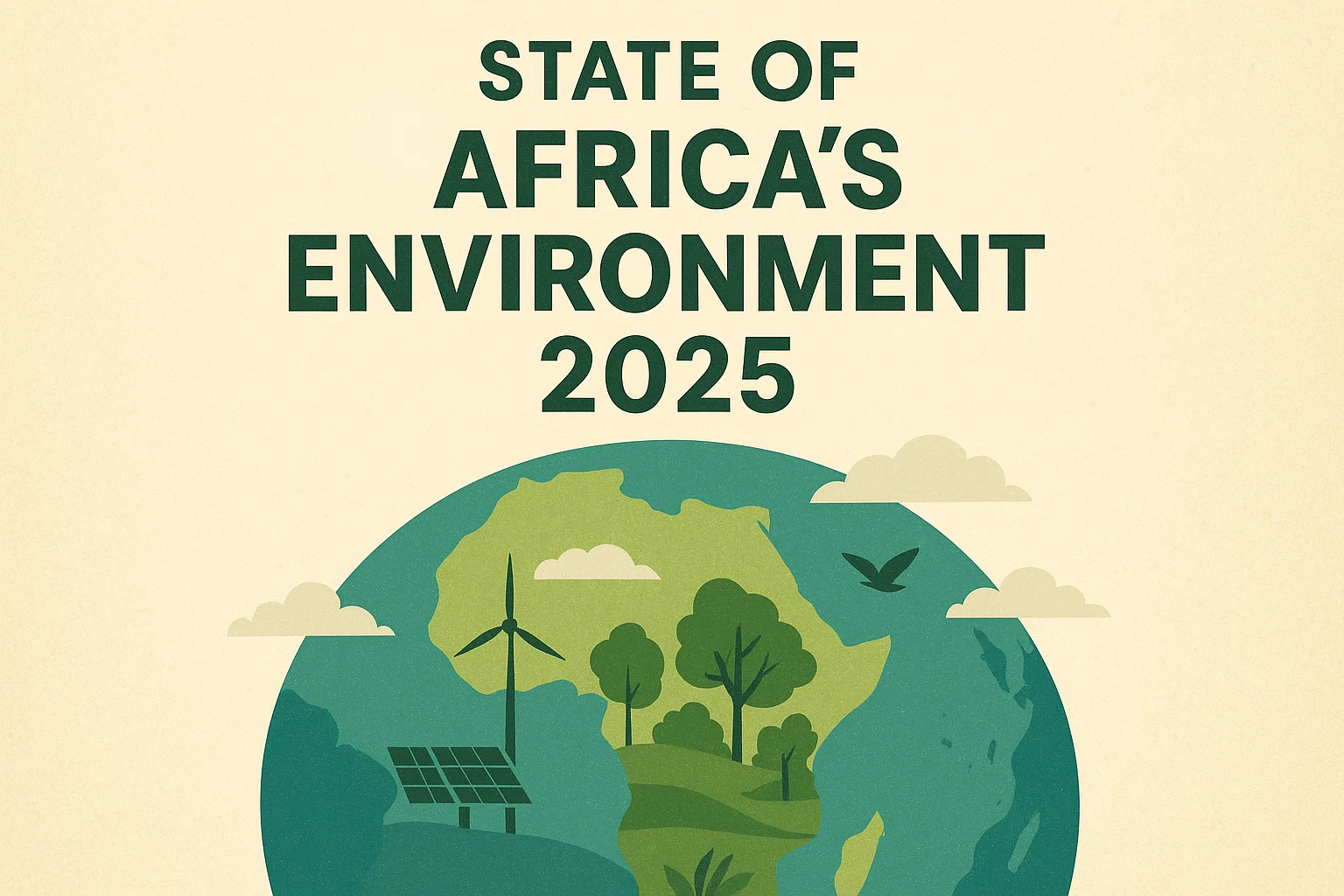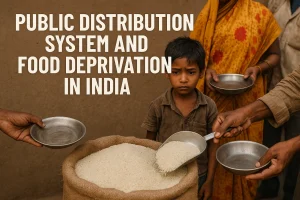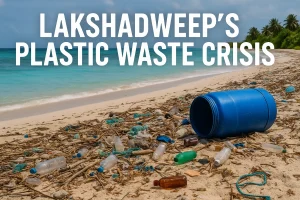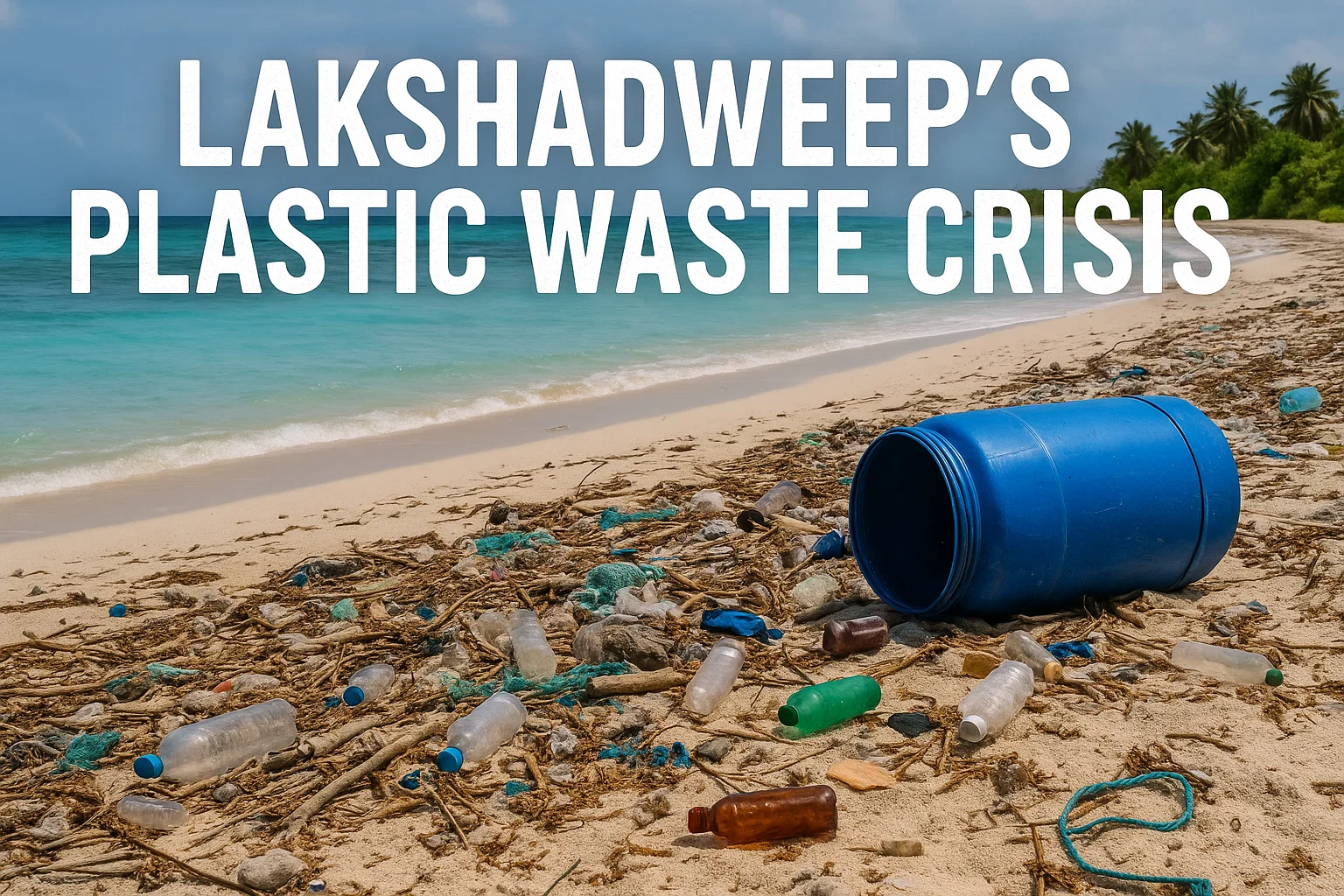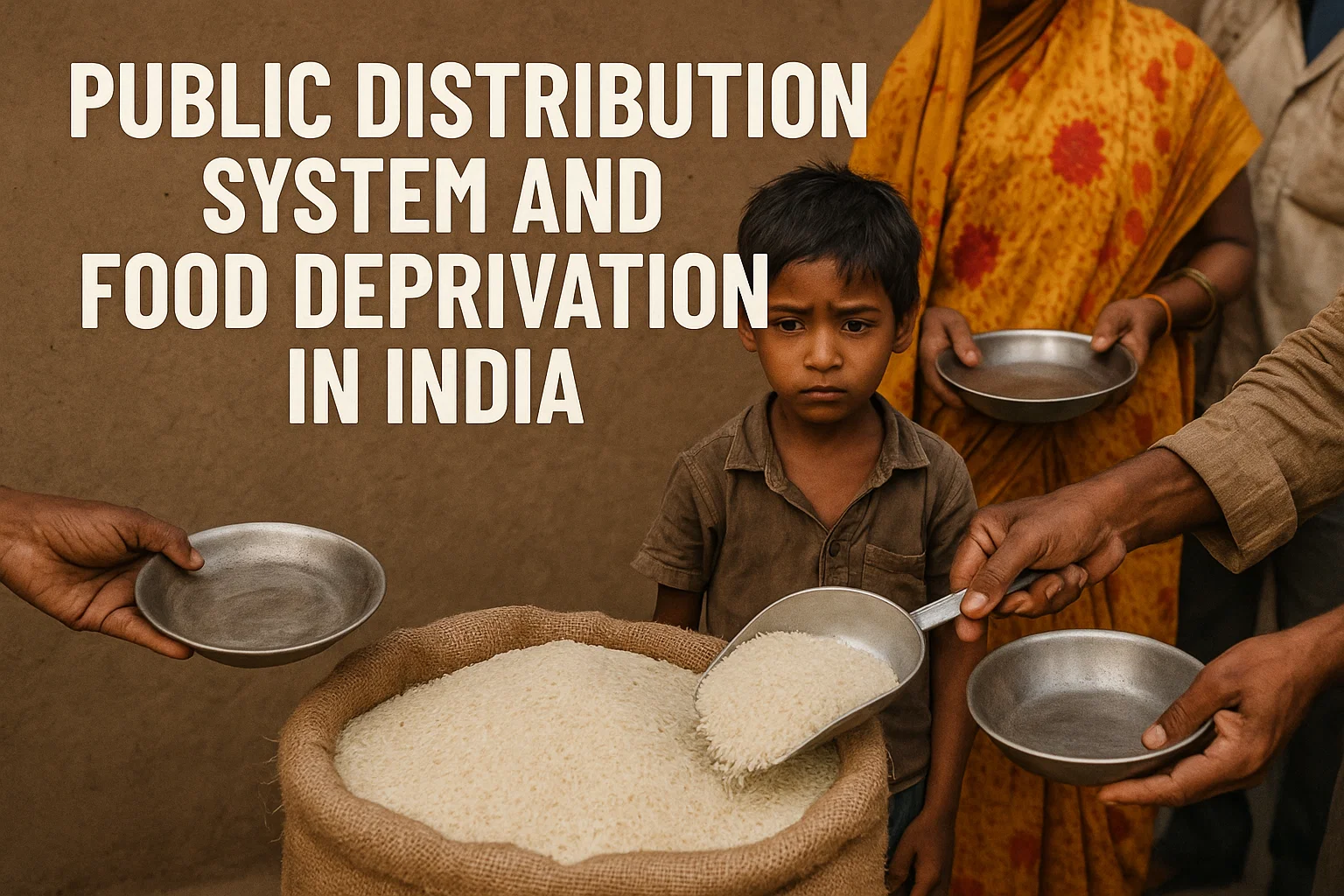State of Africa’s Environment 2025
Africa is warming faster than the global average, facing droughts, floods, migration, and food insecurity. The State of Africa’s Environment 2025 report highlights climate injustice, resilience gaps, and how India can support Africa through technology, finance, and South–South cooperation.

Context
The Centre for Science and Environment (CSE), in collaboration with African research and civil society partners, released the State of Africa’s Environment 2025 report in Addis Ababa. The report presents a sobering reality: Africa is warming faster than the global average, with devastating consequences for people, ecosystems, and economies. Despite contributing the least to global greenhouse gas emissions, the continent bears a disproportionate share of climate impacts, making its case central to global climate justice.
Observations of the Report
The findings of the 2025 report underline the urgent and escalating climate crisis in Africa:
1. Rapid Warming
-
It’s average surface temperature in 2024 was 0.86°C above the 1991–2020 baseline.
-
North Africa warmed the fastest, recording 1.28°C above average, intensifying desertification and water scarcity.
-
This warming rate is higher than the global average, showing It’s vulnerability to climate extremes.
2. Marine Heatwaves
-
Almost the entire ocean area surrounding Africa was hit by strong to extreme marine heatwaves.
-
This disrupts fisheries, a livelihood source for nearly 12 million people, and damages coral reefs and coastal ecosystems critical for biodiversity and storm protection.
3. Extreme Weather Events
-
In 2024 alone, floods displaced over 700,000 people, devastating infrastructure, homes, and livelihoods.
-
Southern Africa’s droughts caused crop failures up to 50% below the five-year average, driving food insecurity.
-
Cyclones and storms intensified in the Indian Ocean and West African coast, damaging cities and disrupting trade.
4. Climate-Induced Migration
-
The report estimates that by 2050, nearly 100 million Africans (about 5% of the continent’s population) could be displaced due to climate stress, particularly in the Sahel, Horn of Africa, and low-lying coastal states.
-
Migration is already rising, with cross-border flows leading to conflict, resource stress, and governance challenges.
5. Food Insecurity
-
Climate change and land degradation have caused an 18% decline in agricultural production.
-
Staple crops such as maize, sorghum, and millet show declining yields. Livestock losses are also rising due to droughts and pasture degradation.
-
Rising food import dependence makes Africa more vulnerable to global price shocks.
6. Disproportionate Impact
-
Africa accounts for 35% of global deaths from extreme weather events over the last 50 years, despite contributing less than 4% of global emissions.
-
The continent’s fragile healthcare, infrastructure, and financial systems amplify the toll of disasters.
Implications for Climate Justice
Africa’s climate crisis raises fundamental questions about equity, fairness, and global responsibility.
1. Low Emissions, High Impact
-
With only 4% of global greenhouse gas emissions, Africa’s climate burden is starkly disproportionate.
-
Wealthier nations with historical emissions are largely responsible, yet it is Africa that pays the highest human and economic costs.
2. Debt and Displacement
-
Extreme weather events cause billions in economic losses annually. Recovery requires external borrowing, pushing many African economies into debt traps.
-
Climate-induced migration also strains host countries, deepening instability in already fragile states.
3. The Adaptation Gap
-
Africa’s adaptation needs are estimated at $50 billion annually, but climate finance flows remain under $10 billion per year.
-
Limited access to technology, data, and finance widens the resilience gap compared to developed nations.
4. A Moral Imperative
-
Climate justice demands that historical emitters shoulder responsibility through funding, technology transfer, and reparative policies.
-
Without such support, Africa risks being locked into cycles of poverty, debt, and displacement.
What Role Can India Play?
As a fellow Global South country with deep historical and cultural ties to Africa, India can play a transformative role in advancing Africa’s climate resilience.
1. South–South Cooperation
-
India can leverage platforms like the India–Africa Forum Summit (IAFS) to expand cooperation in:
-
Climate-resilient agriculture (solar irrigation, drought-resistant seeds).
-
Water security initiatives (rainwater harvesting, watershed development).
-
Community-based afforestation and land restoration projects.
-
-
Sharing India’s own successful experiences with solar power and renewable-led rural development can benefit African nations.
2. Technology and Capacity Building
-
India’s low-cost clean technologies—such as solar pumps, bio-digesters, and microgrids—are ideal for Africa’s rural contexts.
-
Capacity building can be advanced through training African professionals in disaster early warning, meteorology, and green energy at Indian institutions.
-
Investment in data infrastructure can help African meteorological agencies build robust climate models.
3. Climate Finance Advocacy
-
India, with Africa, can champion:
-
Loss and damage funding commitments at COP and G20.
-
Equitable carbon markets that enable African countries to benefit from their forest and land carbon sinks.
-
Debt-for-climate swaps, allowing debt repayment to be redirected to climate projects.
-
4. Ethical Leadership in Energy Transition
-
India and Africa face the dual challenge of development and decarbonisation.
-
India can lead by example through a just energy transition, one that respects indigenous rights, protects biodiversity, and balances sustainability with growth.
-
Partnership on green hydrogen, EV ecosystems, and renewable power corridors can shape Africa’s future energy security.
Way Forward
-
Global Responsibility: Wealthy nations must honour the $100 billion climate finance pledge and scale it up significantly for Africa.
-
Regional Climate Diplomacy: Africa needs stronger intra-continental coordination through the African Union Climate Strategy to negotiate collectively at COP forums.
-
Invest in Resilience: Greater investment in climate-smart agriculture, early warning systems, and coastal infrastructure is essential.
-
India–Africa Alliance: Strengthening cooperation in renewable energy, sustainable agriculture, and affordable technology can create a South–South model of climate resilience.
-
Justice as the Core: Any solution must foreground equity and historical responsibility, ensuring that Africa’s people are not forced to pay for a crisis they did not cause.
Conclusion
The State of Africa’s Environment 2025 report is a wake-up call for the world. Africa is warming faster than the global average, facing droughts, floods, food insecurity, and climate-induced migration. The continent’s plight epitomises the essence of climate injustice: those least responsible are paying the heaviest price.
India, as a Global South leader, has a responsibility and opportunity to partner with Africa—through technology sharing, financial advocacy, and ethical climate leadership. Together, they can reshape climate diplomacy to prioritise justice, equity, and survival.
The choices made in the next decade will decide whether Africa sinks deeper into crisis or emerges as a model for resilient, inclusive, and sustainable development.
Subscribe to our Youtube Channel for more Valuable Content – TheStudyias
Download the App to Subscribe to our Courses – Thestudyias
The Source’s Authority and Ownership of the Article is Claimed By THE STUDY IAS BY MANIKANT SINGH
